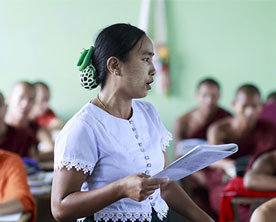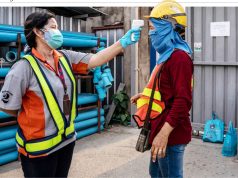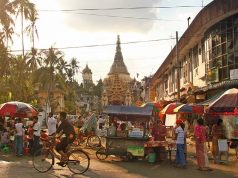Over the last few years the national government, though passing hands in the election, has launched an ambitious and wide ranging series of economic, political and governmental reforms that are impacting all aspects of Myanmar society. In the social sector, major reforms have been undertaken to improve access to quality basic social services for all citizens. Education is one of those fundamental elements to nation building and national unity. The government recognizes that quality, accessible education, made available through multiple formal and alternative education pathways, is essential in order to enable students to achieve their career and lifelong learning goals. A proper education system must ensure that all citizens achieve the minimum national learning standards, learn how to think critically and creatively, gain leadership skills that enable them to help other in their communities, and understand, respect and fulfil the rights and responsibilities of all their fellow citizens. Accessible, quality education is essential for youth to shape and grow their ideas, perceptions, behaviors and values. From it’s heyday in the post-independence boomyears of the 1950s, Myanmar’s national education system has come under increased public scrutiny. For 50 years, the Myanmar education system was starved of funding and institutional flexibility – it now requires a major transformation, a renaissance in approach, interest and funding over the coming years to meet the growing expectations and aspirations of students, youth, parents and citizens.
In a nutshell, the transformation the government wishes to see in national education comes down to two distinct factors; Reaching the largest number of students possible across the entire nation, and bringing standard educational practices out of the dark ages. A brief overview of the current situation of the education sector in Myanmar.
Early Childhood Care and Development (ECCD)
The Ministry of Education and the Ministry of Social Welfare, Relief and Resettlement are the lead ministries involved in the provision of ECCD services. In addition, there are a number of non-governmental and private sector organizations actively supporting communities with the provision of ECCD services.
Basic Education
The current basic education system is comprised of five years of primary education (KG to Grade 4), four years of lower secondary schooling and two years of upper secondary schooling. There are currently 47,363 basic education schools in Myanmar reaching approximately 9.26 million students. The majority of these schools are managed by the Department of Basic Education within the MOE. In addition, a significant percentage of students access basic education through monastic, private, community and ethnic education schools.
For the 2015-16 Academic Year the total number of schools in the basic education system was 47,363, the total number of basic education teachers was 340,955 and the number of basic education students was 9,257,970.
Alternative Education (AE)
The MOE provides access to alternative education through a NFE Primary Education Equivalency Programme (NFP EP) for out-of-school children and a Summer Basic Literacy Programme (SBLP) for adults. NFP EPs are currently being implemented in 89 townships where it is reaching 11,234 students. The SBLP was restarted in 2013 and reached 22,444 students. This figure doubled in 2014 to 46,478 students.
Higher Education
Myanmar has 158 higher education institutions (HEIs) (colleges, degree colleges and universities), which are overseen by 8 ministries. In the 2015 academic year, there were 225,178 students studying full time in HEIs under the responsibility of the MOE, while an additional 411,164 students were accessing higher education through Distance Education Universities.
Technical and Vocational Education and Training (TVET)
Access to technical and vocational education and training in Myanmar is provided by relevant ministries and the private sector through 372 technical and vocational education and training centres. To fill the gap or boost the development of education, the Ministry of Education (MOE) has developed and launched the National Education Strategic Plan (NESP) (2016-2021) to provide a detailed roadmap for comprehensive and phased education reforms to be undertaken over the next five years.
This remarkable initiative has helped the MOE widely discuss the challenges and opportunities to transform the Myanmar education sector in order to provide students, youth and adult learners with educational opportunities that will enable them to fulfil their career and lifelong learning aspirations. A key achievement of the CESR initiative has been the publication of the comprehensive, evidence-based and widely consulted National Education Strategic Plan. (NESP).










